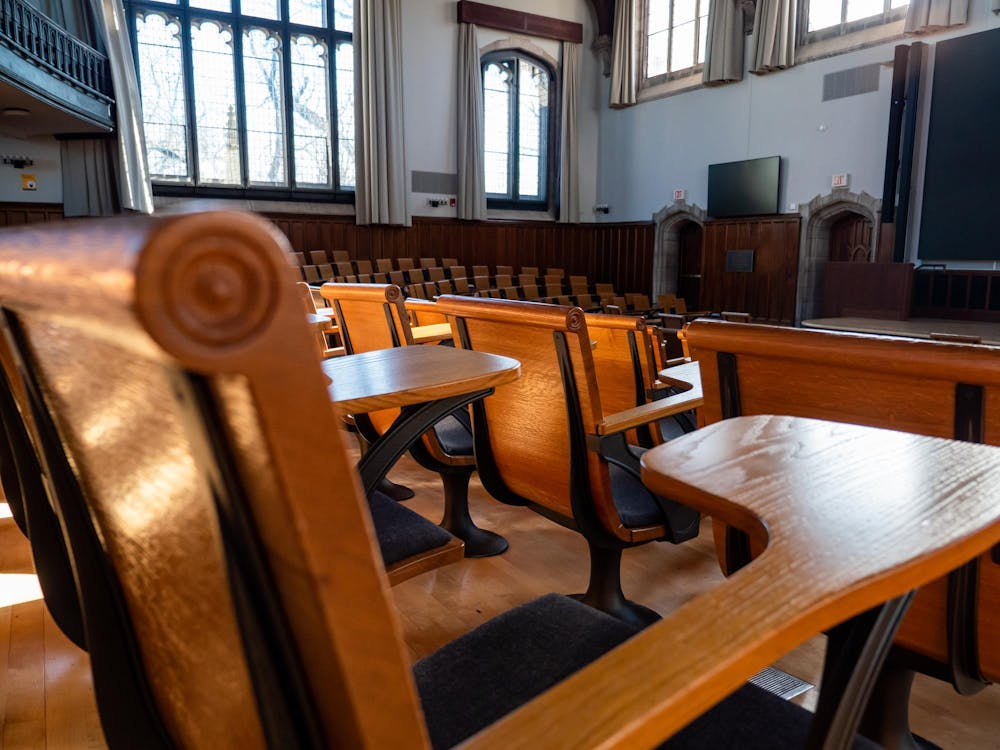A few weeks ago, I had the privilege of having dinner at the house of professor Steve Slaby. A modest, unassuming man in his late seventies, Slaby seems like a typical emeritus professor. He began teaching engineering at Princeton in 1953, remained at the University until his retirement in 1991 and has continued to live in the area since then. After talking with Slaby for a few minutes, however, I realized that he is not, and never has been, a typical University professor.
Unlike many of his peers, Slaby did not devote his energies exclusively to the academic pursuits of teaching and research. As a faculty member, he played a prominent role in mobilizing the campus against U.S. involvement in Vietnam and the University's investment in South Africa during the era of apartheid. Slaby's commitment to humanitarian activism did not detract from his academic duties — he published a textbook and several articles in his subject area. He also mentored scores of students who later considered him a source of inspiration and guidance in matters of technology and social responsibility.
Slaby exemplified one of the best uses of the system of tenure: a professor using job security, not as an end in itself, but as a means to bring about social and intellectual change in the University.
Though there were a few other professors on campus like him during the 1970s and 1980s, such faculty seem even more rare today. Many professors may hold the same convictions and may be interested in similar issues, but there are few who lead the life of organic and engaged intellectuals. Why is this so?
Some professors may argue that the blame lies with undergraduate students. According to them, undergraduates are apathetic, concerned mostly about their careers, thinking only about partying or spread too thin to act on their convictions.
While such arguments are commonplace, they all miss the mark. Princeton students always have been concerned about their careers, and always have been busy with academics and other activities. And yet, 1,000 students found the time to hold a vigil against sexual assault in 1987, 400 students protested registration for the draft in 1980 and over 250 students protested against sweatshop labor last year.
Such demonstrations indicate that, despite their pre-professionalism, students will participate in activism when they have clear knowledge of an issue and its social and moral consequences. They are also more likely to get involved if faculty join them in their activism. For example, more students would protest the embargo on Iraq if prominent faculty worked with progressive student leaders. More would protest against the death penalty if faculty voiced their convictions in public lectures and teach-ins. The same would be true for corporate globalization. Or police brutality. Or hate crimes.
Just as student learning must occur outside the classroom, faculty involvement and guidance should go beyond lectures and precepts. Many professors in the humanities and social sciences have knowledge in areas that are directly relevant to important issues of the day. Even those in engineering and the sciences such as Slaby have the wisdom and enthusiasm to get students to think about the world they are inheriting.

By getting involved in campus activism and intellectual life, faculty have the opportunity to promote not only intellectual curiosity but also social responsibility on issues at the urban, state, national and global levels. They also have the opportunity to build an alliance with students and to serve as advocates on matters of University policy. Such an alliance would be powerful indeed — it would combine the staying power and institutional memory of faculty with the idealism and energy of graduate and undergraduate students. The alliance finally could tackle seemingly intractable issues such as improving employee benefits, limiting the use of adjunct lecturers and promoting diversity in the University curriculum and student body.
This is an important period in the resuscitation of student activism at Princeton. In addition to specialized organizations such as Amnesty International and Princeton Environmental Action, there are more general activist organizations such as Students for Progressive Education and Action, the Democratic Left and Graduate Students for Local Activism. With the help of our faculty, we can finally hope to turn this resuscitation of campus activism into a full-scale revival. S. Karthick Ramakrishnan is a politics graduate student in the Office of Population Research from Holden, Mass. He can be reached at karthick@princeton.edu.








